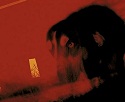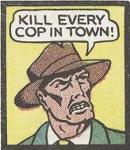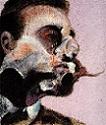|
CestMoi posted:I recently remembered Ngugi wa Thiong'o's name for the first time so I'm feeling p[retty good about my contributions to helping continued victims of imperialism atm A grain of wheat was great (i read the reworked version done after he became a marxist but it doesn't read like propaganda) So far my fav of the black african lit is ahmadou korouma tho. Should read Mabanckou soon, wll keep u updated.
|
|
|
|

|
| # ? May 18, 2024 03:20 |
|
I have to admit pretty much all of the African lit I've read is from the 60's or 70's. Last book i was really into was Season of Migration to the North by Tayeb Salih who is from Sudan - enjoyed that one a lot. Would love some more current recommendations
|
|
|
|
Burning Rain posted:No, i meant Canopus in Argos series, which is actually six books as i just found out (with the full title of the first book being Re: Colonised Planet 5, Shikasta. Personal, psychological, historical documents relating to visit by Johor (George Sherban) Emissary (Grade 9) 87th of the Period of the Last Days) Canopus in Argos is okay; I read them all a few years back - they're good, but uneven. You really can't go wrong with any of Lessing's other directions, though: she owns. Had probably the best reaction ever to being told she'd won a Nobel Prize: https://www.youtube.com/watch?v=6_qyvU6_7nE
|
|
|
|
Read Things Fall Apart in high school and I don't remember anything but yams.
|
|
|
|
Nanomashoes posted:Read Things Fall Apart in high school and I don't remember anything but yams. Ahaha
|
|
|
|
Earwicker posted:I have to admit pretty much all of the African lit I've read is from the 60's or 70's. Last book i was really into was Season of Migration to the North by Tayeb Salih who is from Sudan - enjoyed that one a lot. Would love some more current recommendations
|
|
|
|
The Radiance of the King by Camara Laye is very cool
|
|
|
|
Asked and answered, thanks. For the record posting an author does not mean I endorse their realness as an author. Too few people read any books so anyone reading anything is fine with me.Earwicker posted:its important that scifi authors like philip k dick and orson scott card be brought up in this thread because there are just so few other places in this forum where scifi gets any respect or can be discussed wangvicous posted:I think writing skill has to be a part of it. I just reread Fahrenheit 451. I felt the book was rather shallow and I wasn't particularly impressed with his actual writing. Dr. Gene Dango MD fucked around with this message at 00:57 on Jun 25, 2015 |
|
|
|
Dr. Gene Dango MD posted:I disagree with it being shallow but it's nowhere near my favorite work from him. His short fiction is beautifully written however in my opinion, The Illustrated Man collection especially. Dandelion Wine
|
|
|
|
CestMoi posted:I recently remembered Ngugi wa Thiong'o's name for the first time so I'm feeling p[retty good about my contributions to helping continued victims of imperialism atm Petals of Blood is really good.
|
|
|
|
Nanomashoes posted:Read Things Fall Apart in high school and I don't remember anything but yams.
|
|
|
|
Most mainstream postcolonial literature is crap which glorifies an easy retreat into traditional values.
|
|
|
|
If we are talking African Lit, you can't go wrong with Dambudzo Marechera, who is criminally unheard of for how good / influential he was. He gets called "the African answer to Joyce," and even though I think that's way too reductive, it's not entirely unwarranted. House of Hunger is a really good read, is what I am trying to say.
|
|
|
|
Popular Human posted:Canopus in Argos is okay; I read them all a few years back - they're good, but uneven. You really can't go wrong with any of Lessing's other directions, though: she owns. Had probably the best reaction ever to being told she'd won a Nobel Prize: Cool, thx!
|
|
|
|
Lessing is great.
|
|
|
|
Besson posted:Lessing is great. But Moring is better ohohohohohohohohohohohoho
|
|
|
|
Shibawanko posted:Most mainstream postcolonial literature is crap which glorifies an easy retreat into traditional values. What is some good postcolonial lit that doens't do this tia
|
|
|
|
CestMoi posted:What is some good postcolonial lit that doens't do this tia The God of Small Things
|
|
|
|
CestMoi posted:What is some good postcolonial lit that doens't do this tia i haven't ready any that does tbh
|
|
|
|
Burning Rain posted:i haven't ready any that does tbh Once Were Warriors I mean that's an archetype, but you do find something like that in most of the postcolonial works I've read, even if I've not hated all of the ones that did. I just don't care to read about identity as this thing from the past that needs to be recovered. Shibawanko fucked around with this message at 14:51 on Jun 25, 2015 |
|
|
|
Shibawanko posted:Once Were Warriors yah, i haven't read or even heard about it. is this what you mean with mainstream? just saw the edit. well, considering that the colonial nations and/or empires mostly tried to erase the national identities or construct them according to their own needs, it only makes sense to look back into the past to see what has been lost. glorifying it is another matter ofc, but i really can't remember any book i've read that did that. the ones i've read somewhat recently (rushdie, ngugi, achebe, adichie, naipaul, marquez, rulfo, amado, maalouf, cortazar) sometimes criticise the colonising powers and/or look for what's lost in the past, but i would argue that both of these things are v. important in postcolonial nations. Burning Rain fucked around with this message at 15:06 on Jun 25, 2015 |
|
|
|
Shibawanko posted:Once Were Warriors Unless you're actually someone in postcolonial times who is trying to find your way out of centuries/decades of harsh oppression, is it really fair to judge what their sense of identity should be?
|
|
|
|
Shibawanko posted:. I just don't care to read about identity as this thing from the past that needs to be recovered. So your problem with postcolonial literature is that you have no interest in the philosophical core of postcolonial literature
|
|
|
|
Hey guys can you recommend some actual good pastoral novels that are not about farms and nature I don't really care to read about that
|
|
|
|
Looking if someone knows any picaresque novels that do not have any hilariously immoral main characters
|
|
|
|
Mel Mudkiper posted:So your problem with postcolonial literature is that you have no interest in the philosophical core of postcolonial literature I don't think the idea of returning to traditional values/culture/identity is really the "philosophical core" of postcolonial lit, in fact many postcolonial books go in the exact opposite direction and say that this is impossible, and that attempting to do so causes a lot of badness
|
|
|
|
Earwicker posted:I don't think the idea of returning to traditional values/culture/identity is really the "philosophical core" of postcolonial lit, in fact many postcolonial books go in the exact opposite direction and say that this is impossible, and that attempting to do so causes a lot of badness Its not so much return I had an issue with as his specific use of recovered, which is why I quoted that post. The core focus of postcolonial literature is the event of colonization as a massive shift in the cultural identity of a people. The question is of who a people are before being colonized and how to recover what was lost. I don't think a lot of post-colonial lit explicitly states a people should return to who they were, mostly because, as you said, its impossible. But I do not think you could claim to find a single piece of post-colonial lit that doesn't concern itself with at least recovering the identity that was lost through colonization.
|
|
|
|
Mel Mudkiper posted:Its not so much return I had an issue with as his specific use of recovered, which is why I quoted that post. The core focus of postcolonial literature is the event of colonization as a massive shift in the cultural identity of a people. The question is of who a people are before being colonized and how to recover what was lost. I don't think a lot of post-colonial lit explicitly states a people should return to who they were, mostly because, as you said, its impossible. But I do not think you could claim to find a single piece of post-colonial lit that doesn't concern itself with at least recovering the identity that was lost through colonization. sure they all deal with the issue, but i think that poster was referring specifically to postcolonial books which actually advocate returning to a traditional identity, rather than just dealing with that issue and how it plays out on a personal or social level, or portraying the different competing forces in a postcolonial society who claim to be the bearers or protectors of such identities
|
|
|
|
Mel Mudkiper posted:Its not so much return I had an issue with as his specific use of recovered, which is why I quoted that post. The core focus of postcolonial literature is the event of colonization as a massive shift in the cultural identity of a people. The question is of who a people are before being colonized and how to recover what was lost. I don't think a lot of post-colonial lit explicitly states a people should return to who they were, mostly because, as you said, its impossible. But I do not think you could claim to find a single piece of post-colonial lit that doesn't concern itself with at least recovering the identity that was lost through colonization. Honestly I just don't like it when authors (or anyone else) dwells too much on identity at all. Colonization is material, it's the subjugation of a society which itself was already oppressive by a stronger force for the extraction of labour and resources, usually with some racist ideology or other to justify it. There was nothing "before" it that was meaningfully different from that except a greater or lesser degree of exploitation. There was never a harmonious, happy time where everyone was in their right place. This is the case for individuals as well, there is never going to be a moment where you are really happy and fully realized, and books, music or anything which suggests that you can be are either sentimental or deliberately lying. And yes there are quite a lot of books which explicitly do this, and theorists who explicitly say this in its most vulgar version where they simply want to reinstate the customs of some lost tribe or whatever as the antidote to all kinds of problems. I also just don't like the term because it's too often used in the same way people say "world music". Shibawanko fucked around with this message at 16:50 on Jun 25, 2015 |
|
|
|
Shibawanko posted:Honestly I just don't like it when authors (or anyone else) dwells too much on identity at all. All fiction dwells on identity, you are just noticing it when the identity is othered. The human experience is inseparable from subjectivity and identity is at the core of subjectivity. Shibawanko posted:There was nothing "before" it that was meaningfully different from that except a greater or lesser degree of exploitation. There was never a harmonious, happy time where everyone was in their right place. I think you are strawmanning post-colonial literature here. I cannot think of a single post-colonial novel that naively posits the pre-colonization as perfect. You might get some weird new-age poo poo that does that but thats not really post-colonial.
|
|
|
|
There are certainly various kinds of nationalists in postcolonial societies who do have that mentality with regard to traditional precolonial societies (or their intepretation thereof) - but most of them are not novelists, and when they are tend to be more interested in traditional or historical forms of art rather than examining postcolonial identity questionsShibawanko posted:There was nothing "before" it that was meaningfully different from that except a greater or lesser degree of exploitation This is a very bizarre statement. If a given society had a greater or lesser degree of exploitation prior to colonization than it did during or after, that's a meaningful difference - especially to those being exploited. Earwicker fucked around with this message at 18:45 on Jun 25, 2015 |
|
|
|
Earwicker posted:There are certainly various kinds of nationalists in postcolonial societies who do have that mentality with regard to traditional precolonial societies (or their intepretation thereof) - but most of them are not novelists, and when they are tend to be more interested in traditional or historical forms of art rather than examining postcolonial identity questions Right, but there is a difference between an artist working in a post-colonial reality and a post-colonial artist. We are all living in a post-modern era but that doesn't make all of our art post-modern
|
|
|
|
Mel Mudkiper posted:Right, but there is a difference between an artist working in a post-colonial reality and a post-colonial artist. We are all living in a post-modern era but that doesn't make all of our art post-modern It doesn't, but traditionalist artists in post-colonial societies tend to be reacting very directly to their post-colonial situation, even if they aren't quite examining the issue in the way we think of when the term "postcolonial lit" is used. Whereas with postmodernism, what you say is true but there are a lot of artists working in the postmodern era who are not really reacting directly to that at all, their art is entirely disconnected. Which is just as true of certain artists in postcolonial societies, but I don't think that's who we're talking about. There is a difference between a reactionary and someone who is completely apathetic to the issue.
|
|
|
|
Earwicker posted:It doesn't, but traditionalist artists in post-colonial societies tend to be reacting very directly to their post-colonial situation, even if they aren't quite examining the issue in the way we think of when the term "postcolonial lit" is used. Good point. I mostly am just rejecting the assertion that Post-Colonial art, as a genre, is primarily palingenetic Mel Mudkiper fucked around with this message at 18:55 on Jun 25, 2015 |
|
|
|
Earwicker posted:There are certainly various kinds of nationalists in postcolonial societies who do have that mentality with regard to traditional precolonial societies (or their intepretation thereof) - but most of them are not novelists, and when they are tend to be more interested in traditional or historical forms of art rather than examining postcolonial identity questions It's an important difference (I'd rather live in, say, social democratic Sweden in the 80's than in India under British rule), but I meant "meaningful" in a very literal sense. The difference between India before and India during and after British colonization, for example, is not one of meaning but of contingent changes. Mel Mudkiper posted:All fiction dwells on identity, you are just noticing it when the identity is othered. The human experience is inseparable from subjectivity and identity is at the core of subjectivity. But identity is never self-identity. Nobody is anything in itself, nobody is fully Japanese for example, although most Japanese would claim that they are, and nobody was ever fully Indian. Cultural identity is something imposed from the outside. Subjectivity is not identity, subjectivity is the gap between the self and identity, the degree to which you are able to recognize the contingency of what you are and live with that, subjectivity is alienation. You can dwell on identity and subvert it, mock it, reject it or live with it somehow but a lot of books do ask this question in a way that makes no effort to separate the self from identity. I don't think this is purely a strawman.
|
|
|
|
Shibawanko posted:It's an important difference (I'd rather live in, say, social democratic Sweden in the 80's than in India under British rule), but I meant "meaningful" in a very literal sense. The difference between India before and India during and after British colonization, for example, is not one of meaning but of contingent changes. I do not understand a single thing here.
|
|
|
|
blue squares posted:I do not understand a single thing here. Sweden is better than india
|
|
|
|
blue squares posted:I do not understand a single thing here. That's strange because it's an easy, basic concept.
|
|
|
|
Shibawanko posted:That's strange because it's an easy, basic concept. I don't really follow your second paragraph either. Maybe it's an easy basic concept in your head but you sure aren't explaining it as such, it kind of veers into word salad to be honest.
|
|
|
|

|
| # ? May 18, 2024 03:20 |
|
I think I get what Shibawanko's going for but I'm having difficulty explaining it in words that aren't those words or words more confusing than those words. I'm sort of reading this as being similar(ish) to WIlliam James' theories of self, so that might be skewing what Shibawanko's actually going for. Basically there's your self, which is the you that is intrinsically and necessarily you, and there's your identity, which is a construct formed when the self observes itself in relation to others. Your subjectivity is the extent to which you recognise the necessary gap between these two concepts (?), and fiction should strive to achieve a representation of the self, as opposed to the identity of the author. Not sure I wholly agree, but then again I might have got this horribly wrong.
|
|
|























